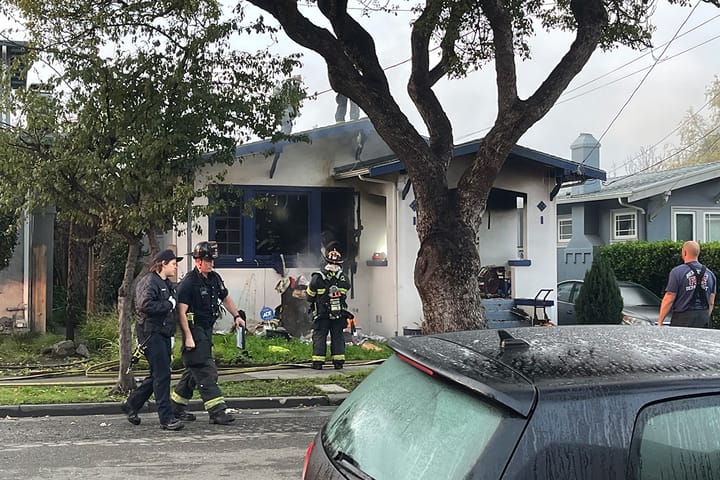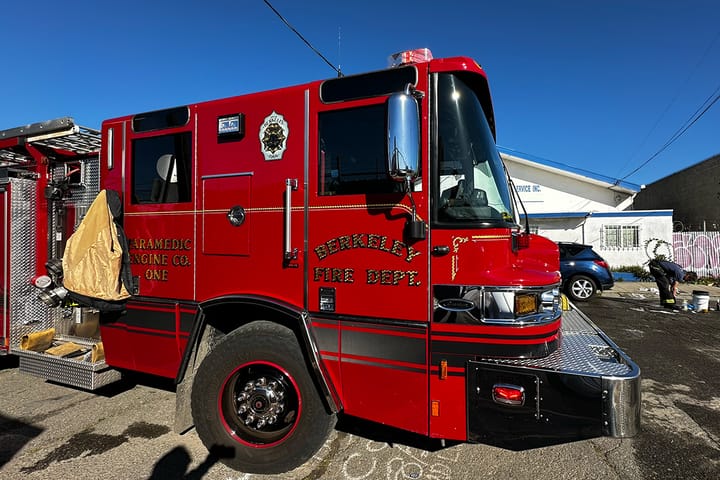Berkeley first responders take active shooter 'master class'
The Berkeley Fire Department secured a $60,000 grant through the Department of Homeland Security to organize the event.
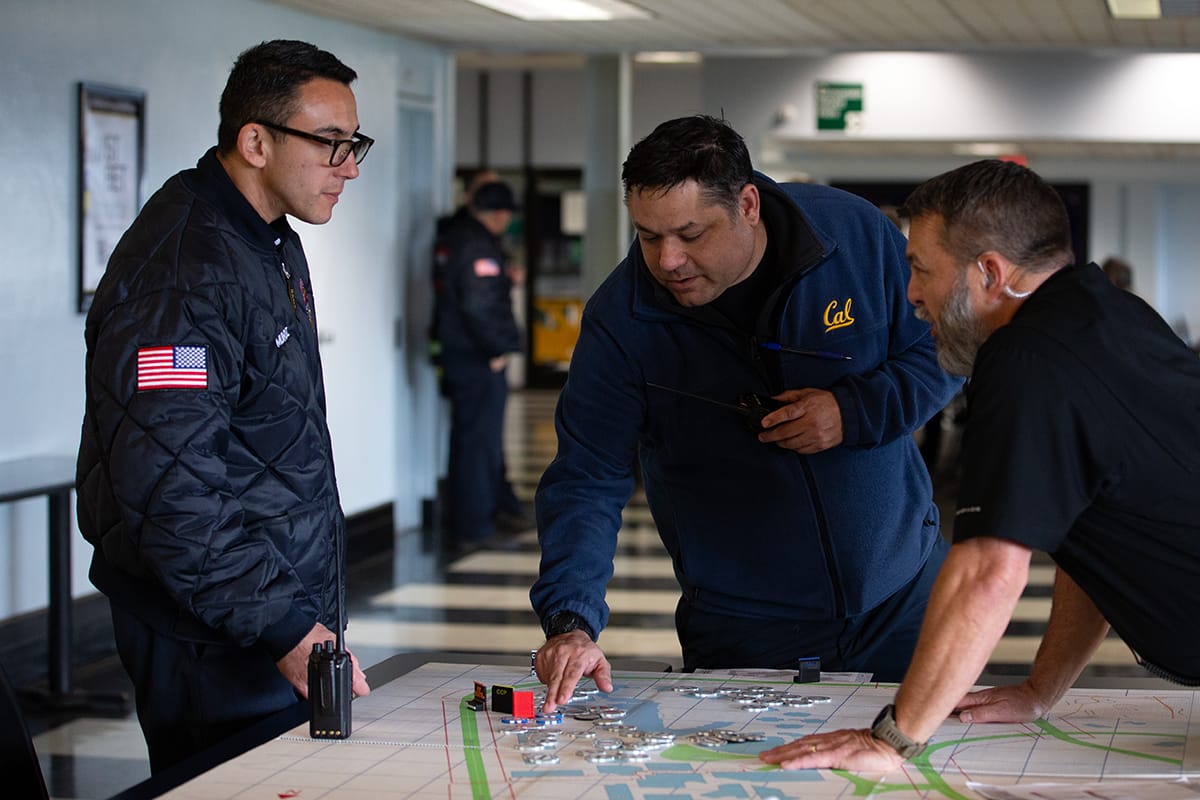
First responders from Berkeley and Albany took a three-day master class this week focused on active shooter calls and other critical incidents.
Dozens of police and firefighters from Berkeley, Albany, UC Berkeley and the Lawrence Berkeley National Laboratory took part in the training from Florida-based C3 Pathways.
The Berkeley Fire Department secured a $60,000 grant through the Department of Homeland Security to organize the event.
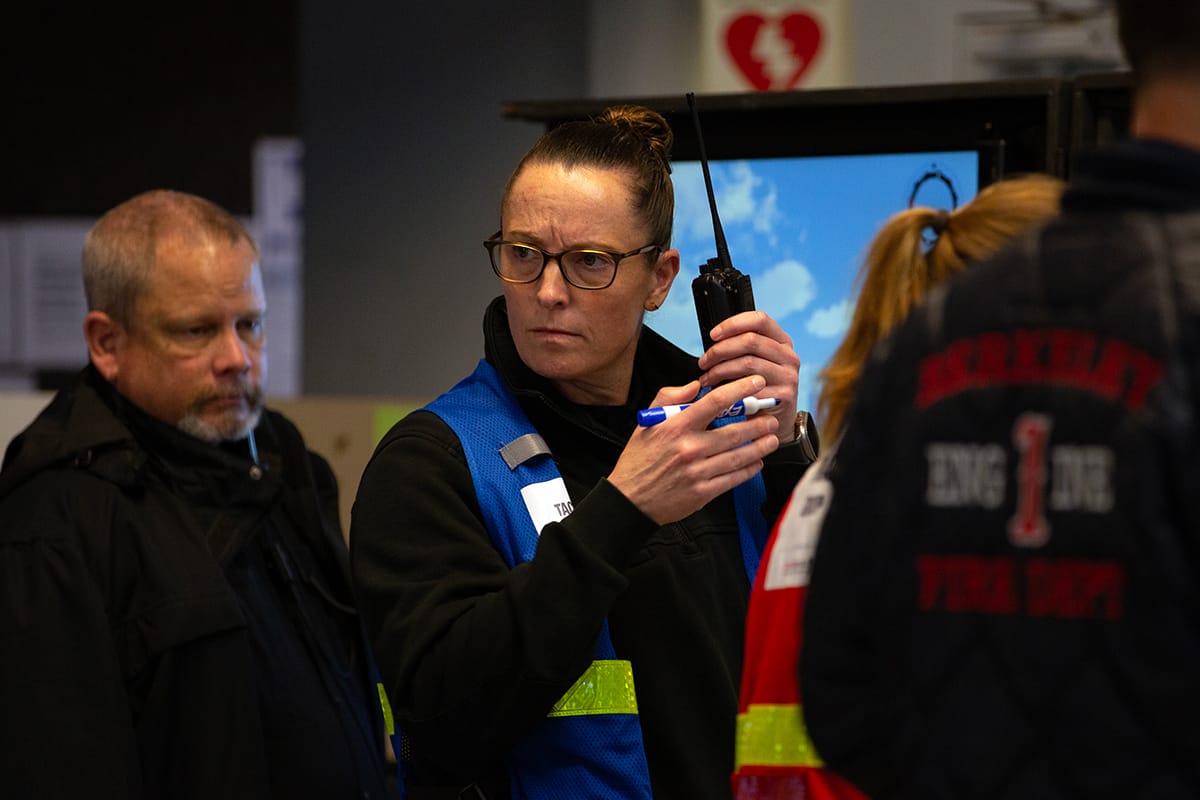
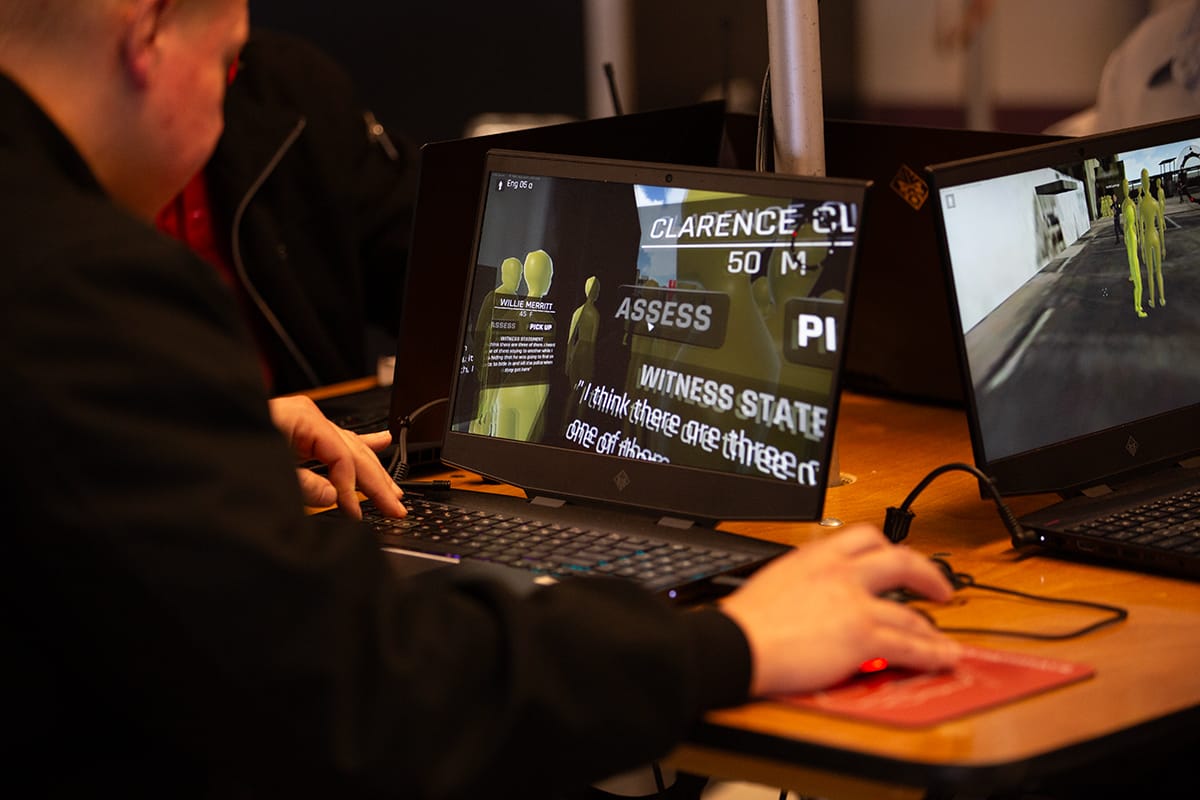
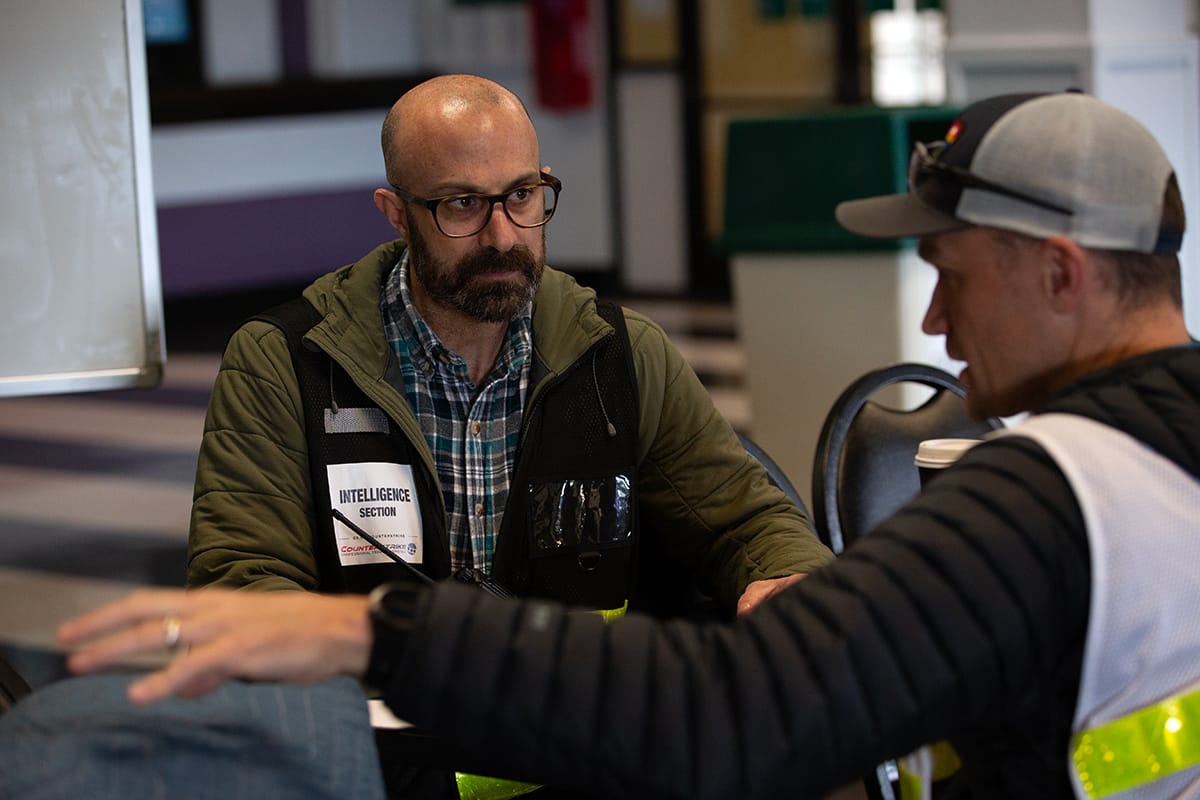
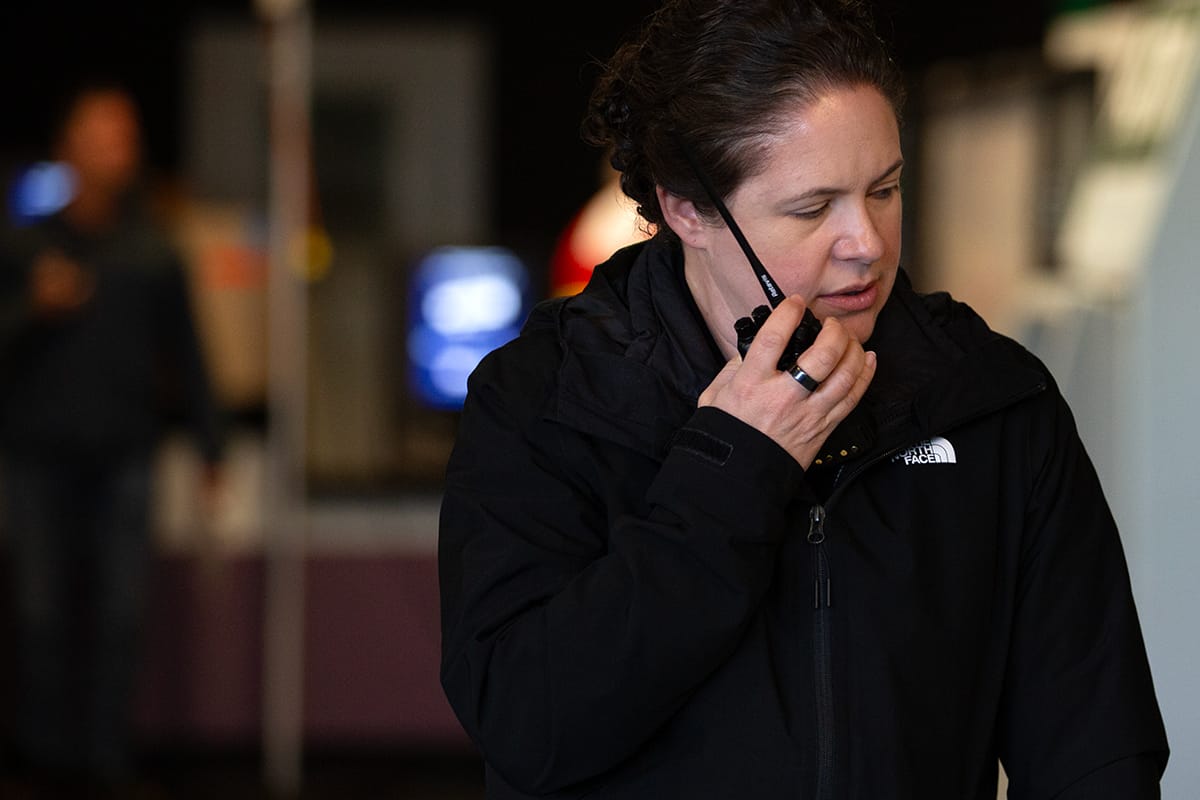
First responders work together at different station to handle a variety of tasks. Emilie Raguso/TBS
The training involved increasingly complex scenarios where first responders could practice different roles, from incident command to medical response to being first on the scene.
Participants assessed the risks, got aid to casualties, deployed resources as needed and ultimately addressed the threat.
Perhaps most importantly, they worked together across departments to make sure they understood how best to communicate during emergencies.
Berkeley Fire Capt. Colin Arnold said BFD has stepped up efforts in recent years to build a more collaborative relationship and improved communication across local agencies to ensure they are ready even in the most challenging circumstances.
Arnold said one of the biggest challenges in handling critical incidents can be in how rapidly they develop.
"Time is a really important factor," he said.
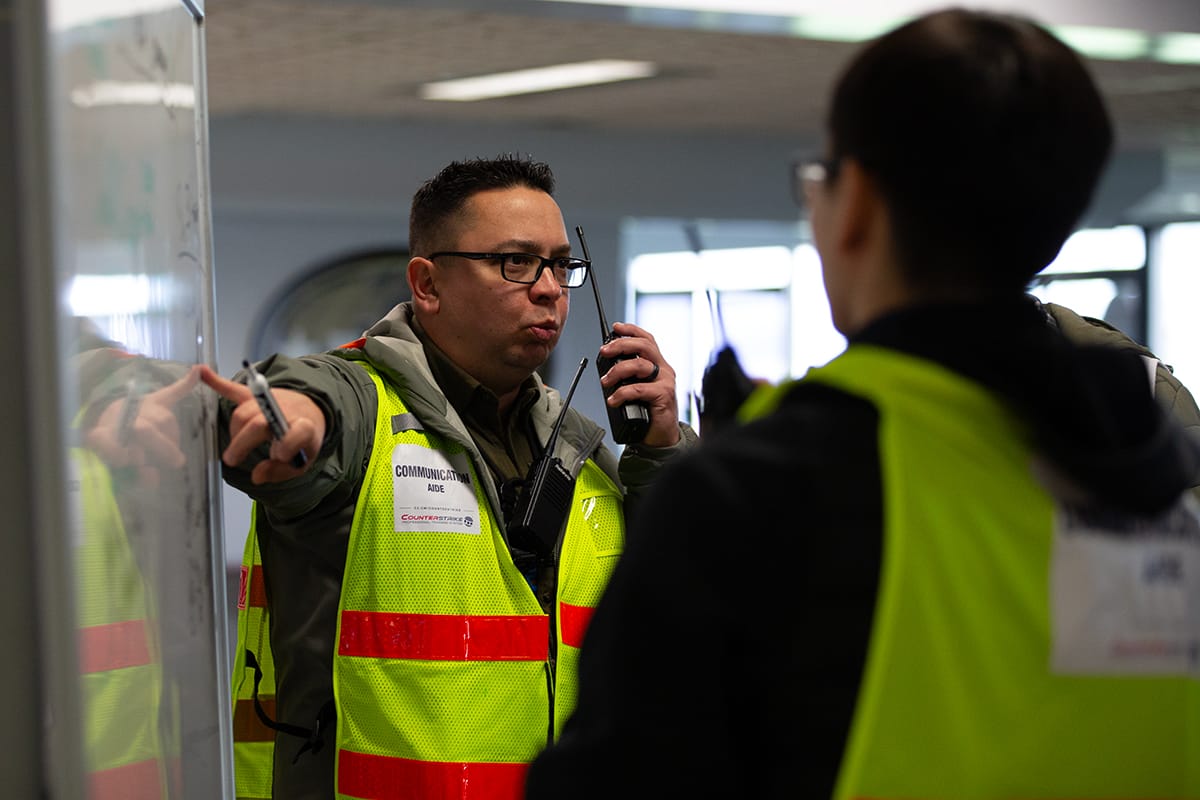
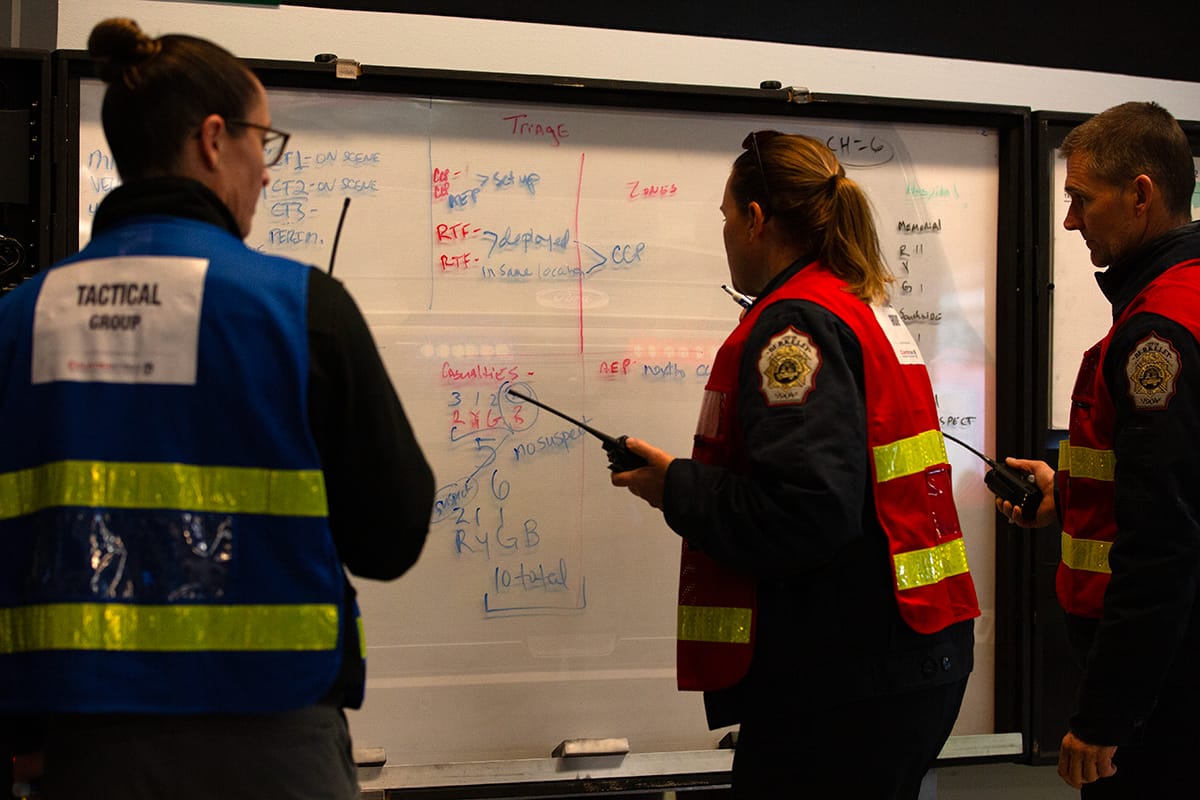
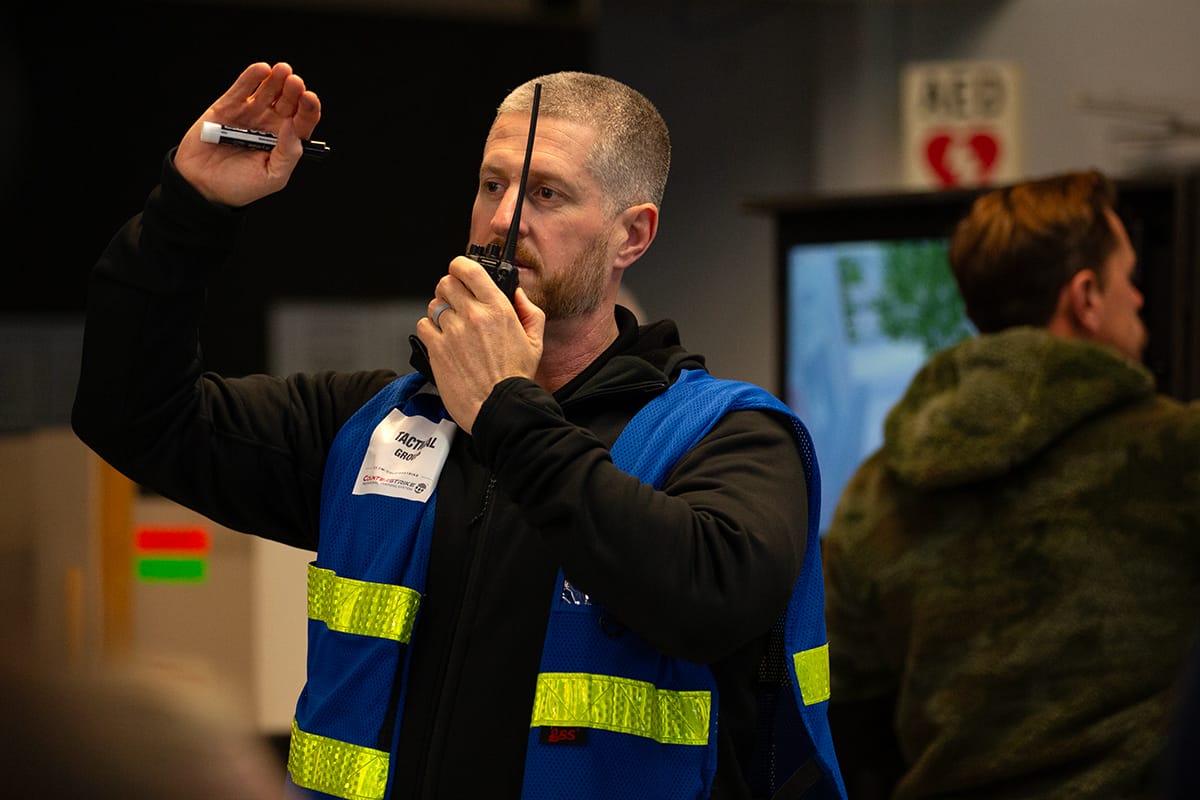
First responders work together at different stations to handle a variety of tasks. Emilie Raguso/TBS
This week's training used computer simulations and other virtual environments rather than live roleplayers.
Incident commanders dispatched teams to different sets of computer terminals depending on the tasks they needed to do.
One scenario involved active shooters at a cruise terminal while another involved a car bomb at a university.
In one of the most complicated scenarios, trainers said Berkeley and Albany first responders had set a record for handling the incident quickly and with the fewest casualties they had seen.
The more the agencies practice together, Arnold said, the more effective their response will be when the time actually comes.
"We have very important jobs to do on a tight timeline. We gotta be good partners going in there together," Arnold said. "How do we find each other and work side by side without getting in each other's way?"
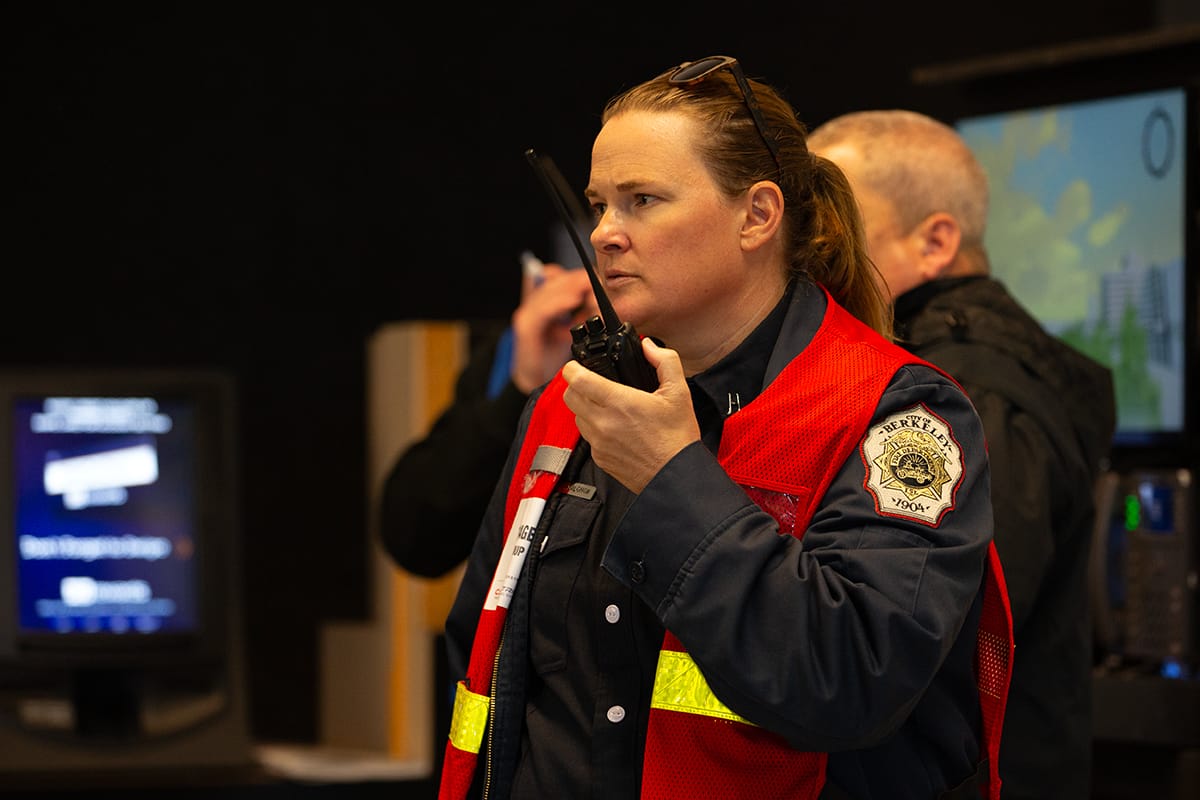
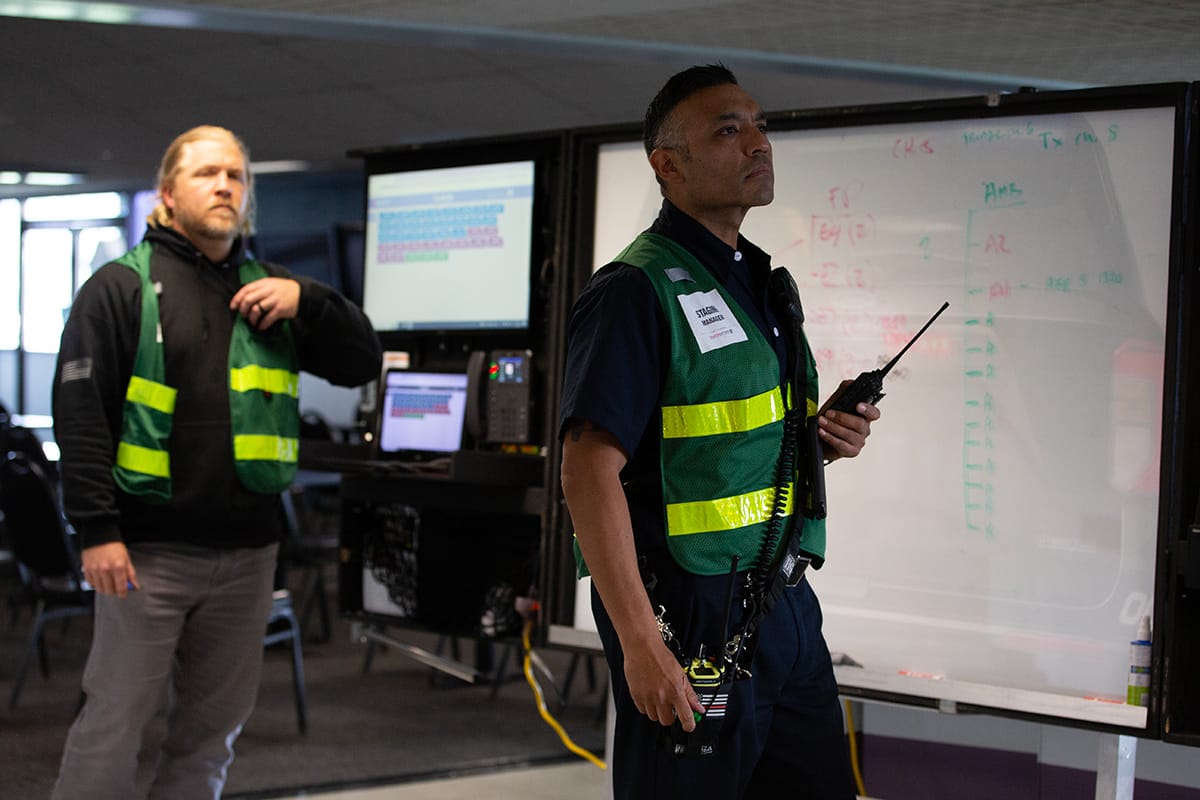
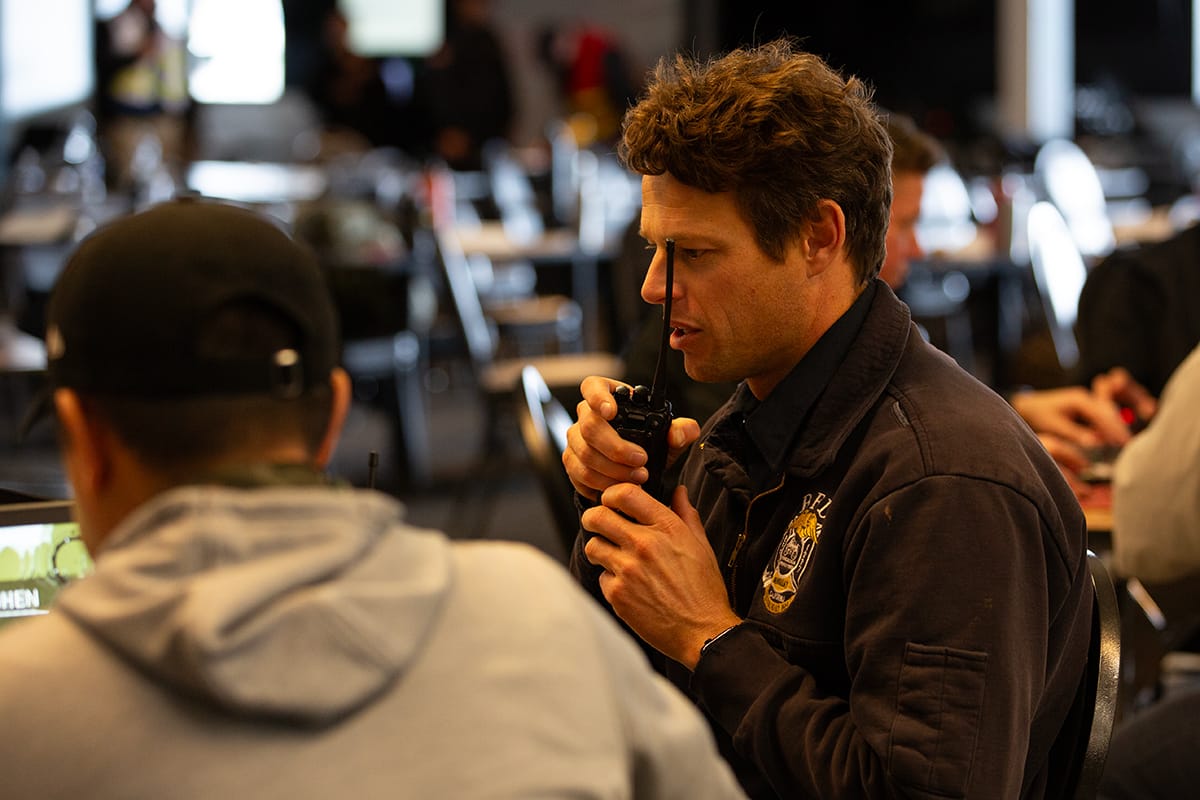
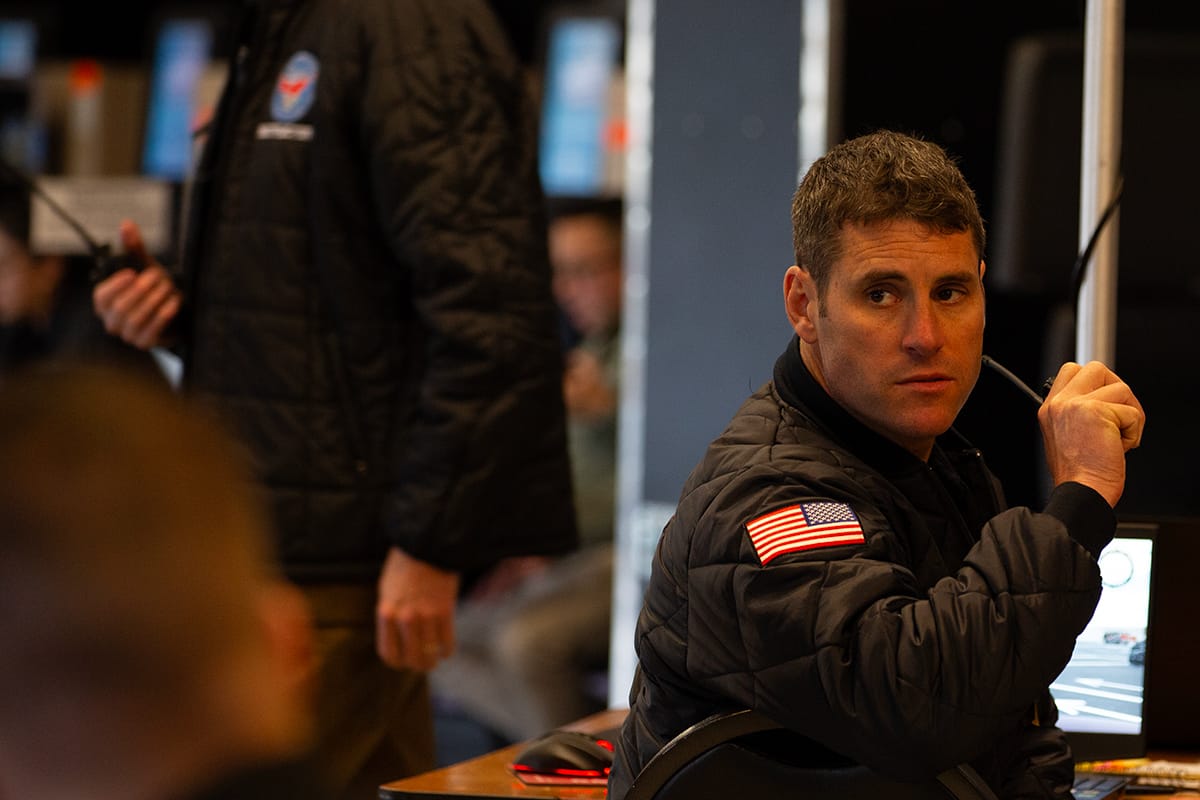
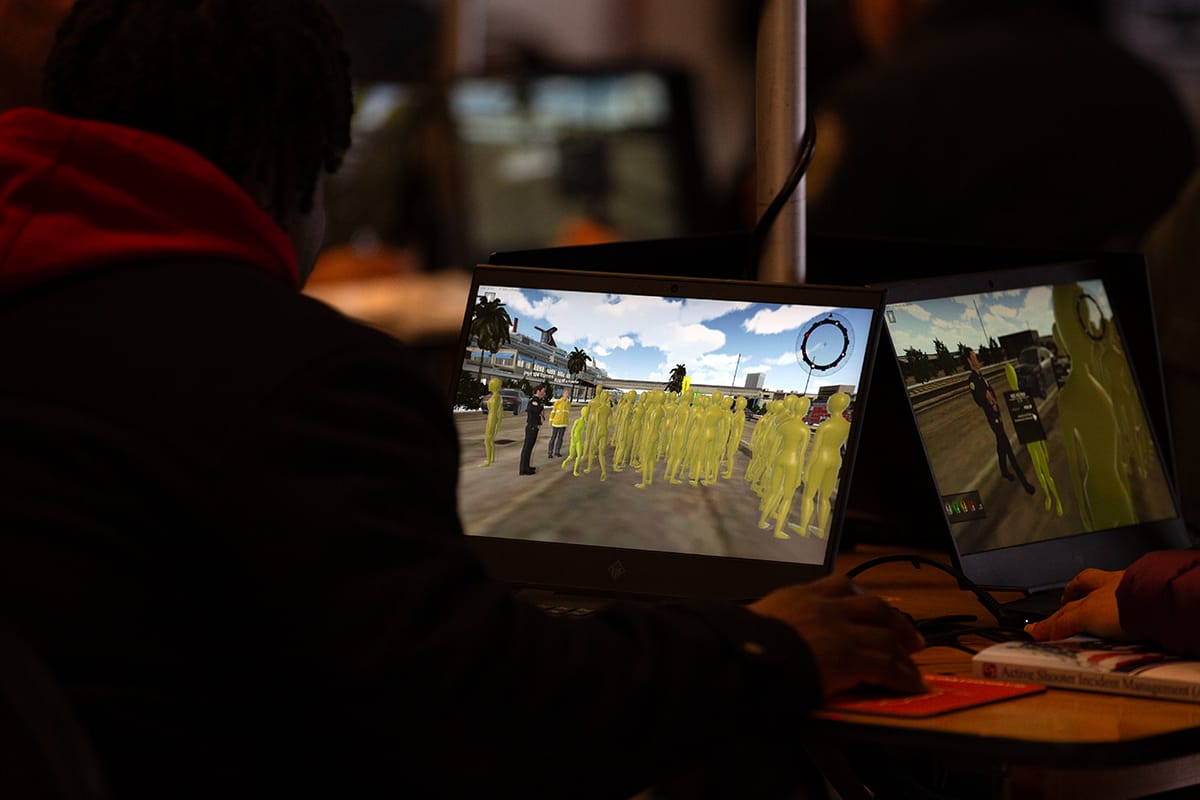
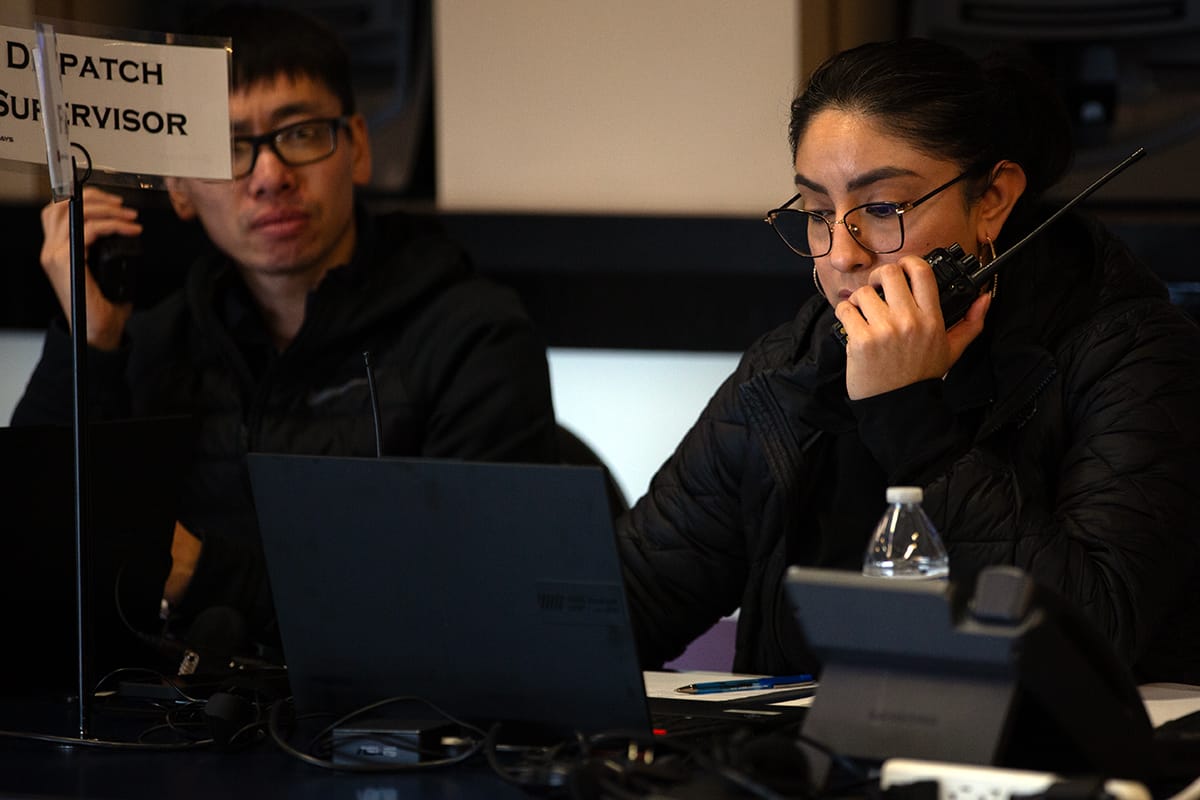
First responders work together at different stations to handle a variety of tasks. Emilie Raguso/TBS


